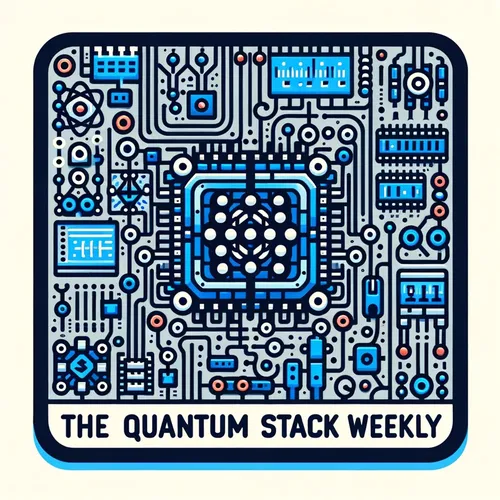Quantum Leap: Fujitsu Unveils Enterprise Quantum Computing Platform, Redefining Industry Workflows
- Author
- Quiet. Please
- Published
- Sat 26 Apr 2025
- Episode Link
- https://www.spreaker.com/episode/quantum-leap-fujitsu-unveils-enterprise-quantum-computing-platform-redefining-industry-workflows--65744345
This is your The Quantum Stack Weekly podcast.
The hum of cooling units fills the air, a low, persistent chorus beneath the racks of shimmering, silver-toned cryogenic chambers. I’m Leo—the Learning Enhanced Operator, quantum computing specialist by trade and, perhaps, philosopher by inclination. Welcome back to The Quantum Stack Weekly, where the classical and quantum worlds meet over a cup of theoretical espresso.
I’m skipping the pleasantries today because, as of just the last twenty-four hours, we’ve seen a real-world quantum computing application leap from theory to industry. In a press release dated April 23rd, Fujitsu announced the live launch of its quantum application development platform for enterprises. Not a prototype, not a proof-of-concept—actual operations, accessible to businesses hungry to transcend the limits of classical algorithmics.
Here’s why this matters. Most enterprise software today is built around the silicon-based architectures of classical machines, solving optimization and simulation problems that, even with petaflops of conventional power, can take days or weeks. Quantum computers, as you know, process information using qubits—physical systems that can exist in superpositions of states, performing complex calculations in parallel. Fujitsu’s platform aims to integrate this capability into the heart of enterprise workflows, allowing companies to offload the most computationally intense parts of their processes—think logistics, materials design, or financial risk assessments—to the quantum layer. It’s like adding a supersonic engine to a commercial jet: the route map isn’t just faster, it’s fundamentally transformed.
But let me paint you a picture. Imagine a finance firm in Tokyo staring down the barrel of market volatility—shifts in interest rates, supply chain bottlenecks, and ever-complex derivative structures. Portfolio optimization, under classical constraints, is like searching for the perfect grain of sand in a vast beach while the tide is coming in. Fujitsu’s new quantum middleware gives them a toolkit to invoke algorithms—like the Quantum Approximate Optimization Algorithm—alongside quantum Monte Carlo simulations, slicing through those solution spaces at speed and with a previously impossible precision.
This isn’t just technical dressing. At the Quantum Computing Applications in Economics and Finance Conference earlier this month, professors like Jesús Fernández-Villaverde and Eric Ghysels highlighted how quantum tools are redefining the possibilities in financial modeling—solving DSGE models, pricing risk, and even exploring quantum-native forms of digital money. The difference now: these tools are being plugged directly into the workflows of real businesses. No more waiting for the quantum ‘someday’—the era of practical deployment has officially begun.
Let’s zoom in for a moment. In the laboratory, a quantum computer hums softly, its processor shielded in icy silence—a world apart from the hot, raucous energy of classical CPUs. Here, a team of engineers configures an optimization problem: supply chain logistics for a multinational manufacturing giant. They encode constraints—delivery times, resource usage, emissions targets—into a Hamiltonian, the quantum operator that defines the solution space. With a press of a button, the quantum processor explores all combinations simultaneously, collapsing on the optimal path in seconds. The drama here, to my mind, is like watching a chess grandmaster play a thousand games at once, seeing every possibility before making their move.
We’re seeing similar breakthroughs elsewhere. When Microsoft recently announced progress with their Majorana-based qubits, the implications reverberated throughout the quantum sector. If the claims stand under scrutiny, these new qubits could be more robust, less prone to error—ushering in an era where quantum computers aren’t just...
